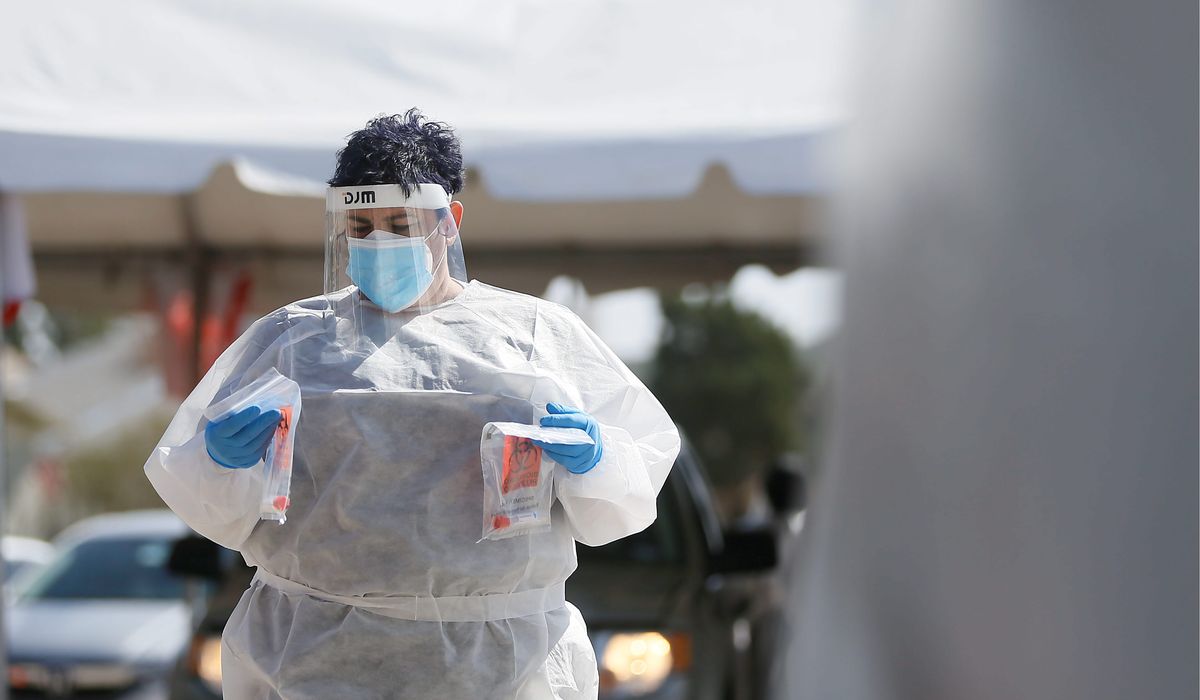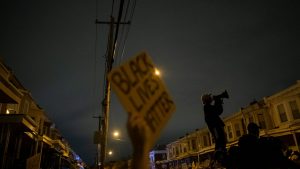The increasing number of COVID-19 patients is taxing hospitals, but the problem isn’t so much about space as it is about staffing, with medical workers exhausted from the pandemic and fewer “traveling nurses” to go around.
Unlike the springtime crisis, shifting manpower around will be difficult because the virus is so widespread.
“When we talk about beds, it doesn’t matter if I have 100 ICU beds. If I only have staff for 10, I have 10 ICU beds,” Dr. Alex Garza of the St. Louis pandemic task force said at recent press conference in Missouri. “Staffing is at a critical level right now. And why is that? The entire country is engulfed in COVID right now.”
Roughly 43,000 people are hospitalized for COVID-19 across the U.S., up from around 29,000 one month ago, according to the COVID Tracking Project.
The steady rise is coinciding with evidence of increasing transmission in many regions, with U.S. seven-day rolling average reaching a pandemic-high 71,000.
Eight months into the fight, hospital officials say nurses on the front lines are facing burnout and personal challenges, including the risk of infection or passing the virus to their families.
The number of hospitalizations isn’t as bad as late April, when hospitalizations neared 60,000 as part of a major crisis in the crowded Northeast and cities like Detroit, Chicago and New Orleans. But the virus has reached smaller, rural areas, making the latest surge more diffuse and posing new challenges.
“That is absolutely a major crunch,” said William Schaffner, an infectious-diseases expert at Vanderbilt University. “As you get into small communities it becomes even more acute. You just don’t have those extra traveling part-time nurses in the environment, which you’re likely to have more of in larger cities.”
Hospital leaders are pleading with the public to mitigate the spread of the virus in any way possible, including mask-wearing. Otherwise, they say they’ll be forced to pause elective surgeries or implement other drastic measures.
In western Michigan, some hospitals have had to shift patients to other facilities as they maxed out their capacity, according to WWMT-TV of West Michigan.
“We have more rooms that we could set up for COVID patients, but you got to have the staff to take care of them,” Oaklawn Hospital Chief Nursing Officer Theresa Dawson told the station.
President Trump is telling supporters on the campaign trail to remain optimistic. He said the U.S. will turn the tide against the virus without resorting to more societal restrictions.
“On November 4th, you won’t be hearing so much about it,” he said. “On November 4th you’ll hear, ‘It’s getting better, it’s getting better.’ You watch — no, no, they’re doing heavy COVID because they want to scare people.”
His Democratic opponent, Joseph R. Biden, said the American people were “giving their all” as Mr. Trump was “giving up” in the battle against COVID-19.
“I’m here to tell you: we can and we will control this virus,” Mr. Biden said, a counter to recent comments from White House chief of staff Mark Meadows. “As president, I will never wave the white flag of surrender.”
The good news is that fewer Americans tend to die from the disease than they did in the early days of the pandemic, with the case-fatality rate down to 2.6% from around 6% during the springtime crisis. Treatments are better, and transmission is skewing toward younger people who can survive the disease.
But a hospital stay isn’t good for anyone, experts warn.
“Being sick is not good for your body and, particularly if you are in bed in an intensive care unit, it’s a very disorienting environment,” Dr. Schaffner said. “Every day that you’re lying in bed, for example, you’re losing some muscle tone — even young, healthy people. It’s not unusual for people, once they get out of the hospital, to work hard over a period of many weeks to get their strength restored. A hospital experience is not like going to a resort.”
• David Sherfinski contributed to this report.



















